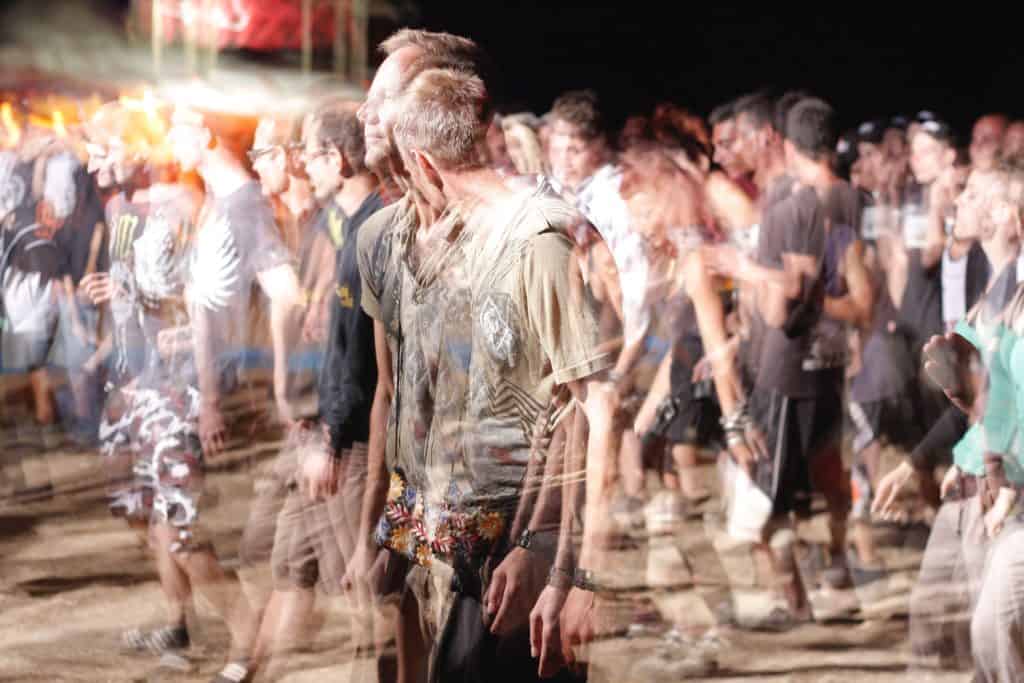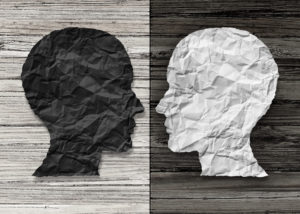Often, individuals who have substance use disorder (SUDs) also suffer from mental and behavioral health disorders. People who have addiction combined with another disorder have what professionals call “co-occurring disorders”. One common co-occurring disorder is bipolar disorder; it often affects those who suffer from drug or alcohol addiction.
What is Bipolar Disorder and How Does it Affect People?
Bipolar disorder is a mental diagnosis that is defined by the presence of one or more episodes of abnormally elevated mood clinically referred to as mania or, if milder, hypomania. This disorder is sometimes referred to as manic depression, manic depressive disorder or bipolar affective disorder.
This disorder is characterized by episodes of mania and episodes of depression. Each individual is different, so the symptoms of bipolar disorder may vary from person to person. But, generally speaking, the symptoms of manic episodes usually include:
- Irritability
- Appetite loss
- Racing thoughts
- Hyperactivity
- Talkativeness
- Sleeplessness
- Lack of judgment
- Lack of concentration
- Extreme level of energy
- Grandiosity (extreme sense of power or confidence)
When individuals experience an episode of depression, they may have these symptoms:
- Fatigue
- Insomnia
- Lack of energy
- Restlessness
- Memory problems
- Poor concentration
- Feeling of hopelessness
- Feeling of helplessness
- Thoughts of suicide
- Self-destructive behavior
- Intense feelings of guilt
- Low self-esteem or lack of self-worth
Individuals who have bipolar disorder may also experience changes in weight (loss or gain). They may also experience a lot of tiredness and sleepiness throughout episodes of depression.
Substance Abuse and Bipolar Disorder: Which Comes First?
In many cases of co-occurring disorders, it’s difficult to determine whether one is causing the other or if the two are unrelated. But, it’s often determined that the presence of one disorder actually leads to the development of another.
Simply put, addiction sometimes leads to the development of a mental health disorder. Many times, people who suffer from addictions such as cocaine abuse, heroin misuse, or alcoholism eventually develop symptoms of mental health disorders, such as clinical depression or anxiety.
On the other hand, some people who already have a mental health disorder such as depression or bipolar disorder may become dependent on or addicted to drugs or alcohol. For example, some individuals use various medications in order to treat the symptoms of their mental health disorders. After using these substances for a while, people’s bodies may become physically dependent on those medications. As a result, individuals may become addicted to the medications they use regularly.
People who have mental or behavioral health challenges may also resort to alcohol use as a way to cope with the symptoms of their disorders. For instance, a person who has bipolar disorder may become overwhelmed by the mood shifts he or she experiences. Or, the individual may struggle with feelings of hopelessness and sadness while experiencing an episode of depression. This could lead the person to drink or use drugs in order to escape from those negative emotions.
After regularly using alcohol or drugs for a while, many people grow dependent on and addicted to these substances. This dependence might lead to full-blown addiction, which will result in the individual having co-occurring disorders.
Bipolar Disorder and Addiction: Similarities, Co-Occurrence, and Treatment
Unfortunately, many of those who have co-occurring disorders struggle to get the help and support that they truly need. It’s important for individuals who are suffering from addiction and mental health challenges to get help through a dual diagnosis treatment program. But, many individuals do not get this kind of help and, in many cases, these individuals suffer from addiction relapse or develop more severe symptoms.
Many people who are addicted to drugs, when they go to see a therapist or psychologist, will receive a diagnosis of bipolar disorder. Bipolar disorder is often a diagnosis that drug addicts and alcoholics receive because their addiction mimics the symptomology of bi-polar disorder.
Here at Northbound Treatment Services, we believe that correctly diagnosing bipolar disorder is essential to the development of a person’s treatment plan. Oftentimes we must wait a few weeks, or possibly a month, to render a diagnosis of bipolar disorder because drug and alcohol addiction can compromise a psychological diagnosis. A person must be free from all mood-altering drugs for at least a few weeks before a correct diagnosis is developed by our treatment team.
Getting the Support You Deserve at Northbound
When it comes to getting treatment for addiction and any disorders that may occur with it, many treatment centers go lacking. Many rehab facilities are best equipped to help those who are suffering from substance use disorders, such as alcoholism or heroin abuse. But, it can sometimes be difficult to find rehab centers that offer dual diagnosis programs and treatment for those who are living with addiction as well as mental health disorders.
Thankfully, you won’t find this to be a problem here at Northbound Treatment Services. At our treatment facilities, we offer help and support for those who are dealing with substance abuse, but we also work to address any underlying causes or contributing factors of addiction.
We understand that mental and behavioral health illnesses often contribute to or intensify substance abuse problems. We also understand the importance of addressing the emotional and mental needs of our clients. So, we work to provide treatment for those who desire to overcome substance abuse and better work through the effects of their mental health disorders.
A Bipolar Disorder Treatment Plan at Northbound:
- Peer Group
- Self-Esteem Group
- Timeline Group/Project
- Dual Diagnosis Group
- Medication Management
- Emotions Management Groups
- Meditation Group to develop relaxation techniques
- Psychological Testing to verify a diagnosis of bipolar disorder
- Medication assessment to ensure you are properly medicated
- Treatment Planning which includes Cognitive Behavior Therapy Groups and one-on-one cognitive behavior therapy
If you or someone you know is suffering from addiction as well as the effects of bipolar disorder, we are here to help. There is no need to fight alone; we will walk with you every step of the way as you work toward recovery!
For more information about our services and how we can help you or your loved one, please contact us today by calling (855) 858-6803.
References:
Author
-

President, CEO & Founder at Northbound Treatment Network
Paul Alexander is the CEO, President & Founder of Northbound Treatment Network in Newport Beach, California. He believes wholeheartedly in transformational leadership, organizational health and effective, fully integrated substance use disorder and mental health treatment. With over 27 years of experience in behavioral healthcare, Paul has extensive knowledge of “in vivo” treatment modalities, clinical development, operations, strategy, marketing and financial planning. He has been widely recognized for his development of collegiate-based residential treatment programs for students in recovery and authored a research study at The University of California confirming this modality’s effectiveness.
Paul’s comprehensive professional experience, willingness to innovate, and emphasis on organizational health are vital factors in Northbound’s continued success. Paul received his Certified Addiction Treatment Specialist training at Saddleback College in Mission Viejo, CA, and was awarded Outstanding Alumni Service Award in 2002. Paul holds a Bachelor of Arts degree in Criminology, Law and Society, Summa Cum Laude, from University of California, Irvine, and a Juris Doctorate degree from Loyola Law School of Los Angeles. Paul currently serves on The National Association of Addiction Treatment Providers (NAATP) board. In addition, he serves on The Family Recovery Foundation board and The CarePossible board in Orange County; both organizations are committed to raising funds for family recovery and treatment for former military personnel. Paul is in recovery himself and lives in Orange County with his wife Silvana and his two young sons, Noah and Dean.










